He Didn’t Want Women. He Wanted Girls To Mold.
Witnesses Describe Surveillance, Skillet Burns, and the Grooming of Girls in the Empire of Diddy. Day 10 recap!
Week 2 Day One officially on the books.
There is something about the way the witnesses walk into that courtroom that says everything before a word is spoken. Their eyes scan the room but do not focus on anything. They are not there to make a statement. They are there because they were summoned. Dragged back into the trauma. Asked to recount things no one should ever have to say out loud. And every single time the prosecution asks that first question. “Why are you here today?” They answer almost identically. Because I was subpoenaed.
It is not defiance. It is not even reluctance. It is a quiet signal to the jury and to the world. I did not choose this. But I will still tell the truth.
Day 10 of the Sean Combs federal sex trafficking trial cracked open a new layer of psychological horror. It brought to the stand former insiders. People who had been in the room. People who had seen things. People who once called Combs a boss, a friend, a protector. And now they were forced to say the quiet parts out loud. The parts they had buried. The parts that still kept them up at night.
One witness, his former assistant, told the court that Combs preferred women who were young and moldable. That phrase did not land like a red flag. It landed like a confession. It was not affection. It was strategy. He said he did not want grown women with opinions. He wanted girls who would follow orders. Girls who had not yet been taught to say no.
And then came the skillet burn.
One of the most disturbing revelations involved a young woman who was allegedly punished with a hot skillet. Not during an argument. Not in a moment of rage. But calmly. Purposefully. As a form of control. In a real kitchen. With real heat. Real flesh. FUCKING, OWWW! The assistant did not say he witnessed the act itself, but he made clear what he had heard and what the staff understood. This was not a rumor. It was a warning.
There were guns too. Always. Witnesses described seeing them out in the open. On counters. In drawers. On his body. Not for style. Not for show. For dominance.
This was not just another day in court. This was a day when the inner mechanics of Combs’ world were exposed. Not the glitz. Not the music. The fear. The rules. The structure. The unspoken system that surrounded him like armor. The people he hired to enforce it. The people he punished to protect it.
And through all of it. The image of the mogul began to collapse. What stood in its place was a man who had built his empire on silence. On submission. On secrets. And for the first time, those secrets were being spoken aloud.
The Rules Were Always His
Dawn Richard did not testify like someone chasing a headline. She didn’t beg for sympathy. She didn’t even speak like someone who wanted to be believed. She spoke like someone who had nothing left to lose. Like a woman who had carried a story too long. Her voice didn’t shake. Her memory didn’t falter. And the moment she took the stand, it was clear guys; this wasn’t about revenge. This was about survival.
She told the jury she met Sean Combs in the early 2000s. She was young. Ambitious. Grateful for a shot. “I wanted to sing. I wanted to dance. I wanted to perform,” she said. And for a while, it felt like she was living the dream. She survived Hurricane Katrina. She survived reality TV. She survived the Bad Boy bootcamp. But nothing, nothing, could have prepared her for what she saw inside Combs’ inner circle.

Behind the music, behind the money, behind the branding machine, was a system built entirely around his control.
“You couldn’t tell him no.”
That’s how she described it. A world where saying no wasn’t just risky. It was dangerous. “If you said no, you were done. You were off the record, you were off the show, you were off the tour.” In Combs’ universe, silence was rewarded. Obedience was expected. And fear was the currency.
She described the “house rules” at Bad Boy; rules that weren’t written down, but enforced like gospel. There were girls around all the time, she said, and some of them seemed like they didn’t belong. “They were young,” she said. “They didn’t speak.” Many were introduced through employees or connected friends, and they were “picked” by Combs. “He liked them young. He liked them moldable.”
That word…moldable. It hung in the air like a fog. And still does.
“He didn’t want women with opinions,” she said. “He wanted girls he could shape. Girls who would do what he wanted.” It wasn’t romance. It was design.
And when asked why no one stopped him, why no one spoke out back then, Dawn didn’t flinch. “You couldn’t say anything. If you did, you were out.”
Even if someone had tried to protect the girls, she explained, there was no one to go to. No one would listen. “We were all scared,” she admitted. “You did what you were told.”
The defense tried to paint her as bitter. Jealous. Irrelevant. But Dawn didn’t take the bait.
“I didn’t want to be here,” she told the court. “But I was subpoenaed. I’m telling the truth because that’s what I was asked to do.”
And that’s what made her testimony so devastating. She wasn’t there for a headline. She wasn’t even there for justice. She was there because the rules were always his. And now, for the first time, someone else was rewriting them.
Kerry Morgan – The Best Friend Who Hid in a Ditch, Then Testified Anyway
Kerry Morgan did not walk into court to perform. She did not raise her voice. She did not ask for sympathy. She sat upright. She answered clearly. And she made one thing known from the start. She had been subpoenaed. That was why she was there. She and Cassie Ventura had not been friends in years. And she had no intention of pretending otherwise.
They met when they were young. Teenagers. Modeling in New York. They lived together. They worked together. They survived the music industry together. But in 2018, everything changed. Kerry told the jury that she had been at Cassie’s house in Los Angeles. That night, Combs attacked her. She said it happened suddenly, without warning. He choked her from behind. She couldn’t breathe. She felt his fingers tightening around her neck. She told the court she had visible marks afterward.
Then he threw a wooden hanger at her head. She testified that it hit her so hard she got a concussion. It wasn’t a playful toss. It wasn’t an accident. It was a weapon. She was stunned. Dazed. Disoriented. Her vision blurred. Her head throbbed. Cassie was in the bathroom during the attack. When she came out, Kerry expected outrage. Concern. Protection. But instead, Cassie offered her money. Thirty thousand dollars. If she signed an NDA, the whole thing would go away.
Kerry took the money. And cut her off.
That was the last time they spoke. She told the jury she had no desire to reconnect. That friendship was over. When Combs’ lawyer, Marc Agnifilo, asked her point blank why she was there at all if she no longer spoke to Cassie, Kerry didn’t blink. “She still hasn’t reached out to me,” she said. “I’m sure she doesn’t have the same phone number.” Her tone was flat. No anger. No tears. Just the facts.
Like I said they hadn't been friends in years and she still showed up. Still told the truth. Because something had happened in that house that could not be explained away with a check.
She told the jury about Jamaica. About the trip in 2013. About the night Combs dragged Cassie by her hair. She said Cassie’s head hit the ground. That she lost consciousness. Kerry watched it happen. She remembered the panic. She remembered the sound. Later that night, she and Cassie tried to run. They jumped into a golf cart and drove across the property, trying to get away. But Combs followed in another cart. She said it felt surreal. Like being hunted. They didn’t make it far. So they did what scared women do when no one is coming to save them. They hid in a ditch.
She said they stayed low. Mud on their clothes. Heart pounding in their ears. They didn’t know what he would do if he found them. They didn’t know what he was capable of. And they didn’t want to find out.
Another night. A different house. Different city. Kerry and Cassie locked themselves in a room to get away from him. Combs came back with a hammer. She said it like it was the most ordinary sentence in the world. No embellishment. No theatrics. Just the truth. He smashed the door. Came through it. Piece by piece. And that was what life looked like inside his world. Locked doors meant nothing. Safety was a joke. Violence was the rule.
And still, no one called the police.
Not when the hanger hit her.
Not when the hammer broke through.
Not when the choking left marks around her neck.
Because inside Cassie’s house, the rules were his. Kerry called it one of the most terrifying nights of her life. The concussion from the hanger left her disoriented for days. She didn’t go to the hospital. She didn’t tell her family. She signed the NDA. Took the thirty grand. And disappeared.
Until now.
She made it clear that she did not want to be in that courtroom. She was not trying to take sides. She had moved on. But when the subpoena arrived, she showed up. Her voice didn’t shake. Her story didn’t waver. And when the defense tried to twist her motives, she didn’t budge.
She lived through it all.
And when asked why she was testifying for a woman she no longer speaks to, she gave the only answer she needed.
“I was subpoenaed.”
And that was enough.
Eyes on Everything
The skillet wasn’t the only story the assistant, David Jones told. It was just the beginning.
He described a house where the lights were always too dim. A mansion that felt less like a home and more like a stage. “There were cameras everywhere,” he said. In the hallways. In the bedrooms. “You always felt like someone was watching you.”
He wasn’t speaking metaphorically. There was surveillance. real, intentional, strategic. And it wasn’t about security. It was about control.
He testified that some of the girls were told what to wear. What to say. When to eat. Sometimes when to speak. And most chillingly, when to disappear.
“He didn’t just want women around,” he said. “He wanted them obedient. He wanted them scared.”
One story stood out! One of the girls, barely in her twenties, had been invited to stay for what she thought was a party weekend. It turned into weeks. Her phone was taken. She didn’t know who to call or how to leave. Staff would bring her food, but she wasn’t allowed in certain parts of the house. And when she asked to go home, she was told to wait. “She started crying,” the assistant recalled. “She kept saying, ‘I want to go.’
But leaving wasn’t easy. Not when the doors were locked from the outside. Not when someone else held your clothes, your keys, your name. That girl, she said, eventually got out. But the others? Not all of them did.
The assistant didn’t just outline a pattern of abuse. He described a machine, designed to isolate, manipulate, and dismantle. It wasn’t always violent. It didn’t have to be. Sometimes it was the silence. The locked doors. The missing phone. The quiet suggestion that no one was coming to help you.
“It didn’t start bad,” he explained. “It started with gifts. Compliments. He made you feel seen. Then, when you didn’t even realize it, you were trapped.”
By the end of his testimony, one thing was clear: Combs didn’t just want women to submit. He wanted them to forget they had ever been free.
David James – The Assistant Who Heard Her Say She Couldn’t Get Out
David James, Diddys assistant mentioned above, took the stand in a crisp shirt with a stiff posture. He spoke with the kind of restraint you only develop after years of working under powerful people. He didn’t try to win over the jury. He answered each question like he was still on the clock. Like he was still carrying out orders.
He told the court about his first interview with Bad Boy Entertainment. It took place at the company’s Broadway headquarters. He remembered being led into the office and noticing a large framed photo of Sean Combs hanging on the wall. Someone gestured to it and told him plainly, “This is Mr. Combs’ kingdom. We’re all here to serve it.”
He didn’t think much of it at the time. But looking back, it made perfect sense. Everything in Combs’ world revolved around that one truth. It wasn’t a workplace. It was a throne room. And everyone who worked under him knew exactly what was expected.
James said he was responsible for prepping hotel rooms before Combs arrived. It wasn’t just about comfort. It was about control. Every detail had to be perfect. The right food. The right candles. The right energy. He made sure the lighting was correct. That the rooms were soundproofed when needed. That there were no surprises. He said Combs had a specific way he wanted things done and that if anything was off? Well, there would be consequences. He didn’t describe yelling or violence. He described pressure. Unrelenting. Quiet. Sharp. Pressure.
He confirmed what other witnesses had already made clear. There were always guns. Just as Dawn had testified. James testified that members of Combs’ security staff were openly armed. They didn’t hide it. The weapons were visible. Accessible. Present at all times. It didn’t feel like protection. It felt like warning. You didn’t ask questions. You didn’t linger too long. You did what was expected and stayed out of the way.
But what stuck with him most was something quieter.
He described a moment on the dock of Combs’ Miami Beach home. He was outside smoking a cigarette with Kerry Morgan and Cassie Ventura. They were trying to decompress. Just for a minute. Just be normal people instead of parts of the machine. And that was when Cassie turned to him and said something he never forgot.
“She said to me, ‘Man, this lifestyle is crazy.’”
Then she said, “I can’t get out.”
She told him that Combs controlled everything. Her music. Her money. Her movements. She said, “Mr. Combs oversees so much of my life. He gives me an allowance.” There was no panic in her voice. Just exhaustion. Just a quiet, flat honesty. Like someone who had accepted that escape was not an option.
So sad.
James didn’t repeat that story for years. He didn’t share it on social media. He didn’t post about it after Cassie filed her lawsuit. He kept it to himself. Because in Combs’ world, that is what you do. You stay quiet. You keep moving. You survive.
He didn’t hesitate. He told the truth exactly how he remembered it. And what he described was not a toxic workplace. It was a closed system. One where power was absolute. One where fear was the policy. One where even assistants, even people like him, knew that questioning the order could get you pushed out.
He was not there to defend Cassie. He was not there to take down Combs. He was there because he had seen too much. And finally, someone had asked.
So, he told them. About the kingdom. About the guns. About the cigarettes on the dock. And about the woman who looked him in the eye and said she couldn’t leave. And when he finished, the courtroom was silent. Because you could tell.
He had been holding that moment for a very long time.
The System Was Always On
Janes didn’t describe a man with impulse issues. He described a man with a blueprint.
He told the jury that Sean Combs didn’t just build homes. He built ecosystems. Every location had its own code. Rules. Architecture of control. And above all? Surveillance.
“Everywhere I went, there were cameras,” Jones testified. Not just at the gates or in the living room. “Bedrooms. Hallways. Offices.” Even in the private guest wings. The feeds, he said, were live. Active. Reviewed.
His job wasn’t to spy. His job was to manage movement. Which meant he knew who was arriving. Who was leaving. Who was staying too long. And more importantly, who had suddenly vanished.
He said women were sometimes flown in on short notice. Told they were attending a party or a business meeting. “They thought they’d be there a night,” he said. “Some of them stayed for weeks.” Phones disappeared. Outfits were assigned. Schedules were dictated by Combs or his intermediaries. James didn’t control that part but he watched it get enforced.
And the cameras made sure no one forgot their place.
He described moments when women cried behind closed doors, asked to leave, or tried to sneak away. “There was always someone watching,” he said. If a girl looked unstable or emotional, she was flagged. Moved. Managed.
But the most chilling part wasn’t the tech. It was the silence it created.
“You didn’t talk about what you saw,” James said. “You just kept the day moving.”
When asked what happened to girls who spoke up or pushed back? His answer was clinical:
“They disappeared.”
Not kidnapped. Just erased. Off the list. Off the call sheet. Off the property. No explanation. Just gone.
Diddys assistant didn’t pretend to know where the footage went. Or who kept the archives, or how it was used. But he knew this. The surveillance wasn’t there for protection. It was there for power.
And power doesn’t need a motive. It just needs a record.
Black Box Security – The Watchers Behind the Wall
The cameras weren’t just decoration. The control wasn’t just personal. It was outsourced. Engineered. Contracted.
Diddys assistant never named the company directly but those watching the case from the outside already knew. Or at least I think I do….
Black Box Security.
A private intelligence firm with clients in Hollywood, Wall Street, and the darkest corners in between. On paper, it looked like a boutique protection agency. In practice, it behaved more like a civilian version of the CIA. Tapping phones, planting surveillance devices, and watching women inside their own homes.
In Sean Combs’ world, Black Box wasn’t just providing security. They were part of the infrastructure. They didn’t protect people. They monitored them.
It was long rumored that Combs used Black Box not just on business rivals or former staff, but on Kim Porter, the mother of three of his children. After her death, whispers swirled that she had been under surveillance. Tracked. Possibly even bugged. While no formal charges were ever brought, the paranoia in Combs' circle was so intense that people began checking their rooms for hidden mics.
But the Combs case isn’t the only time Black Box has appeared in the shadows.
Britney Spears was also under their watch.

During her conservatorship, the same security company was used by her father Jamie Spears and Lou Taylor. The woman behind Britney’s financial control. According to whistleblower and former Black Box employee Alex Vlasov, they placed a recording device in Britney’s bedroom.
That’s right. Her bedroom.
She was allegedly recorded without her knowledge, including during conversations with her lawyer, in what legal experts have called a potential felony violation of her constitutional rights.
They mirrored her iCloud. Monitored her texts. Tracked her locations. And this wasn’t for safety. It was to control what she said, who she talked to, and what she thought she was allowed to do.
And now that same firm has been tied to Sean Combs.
Imagine being a young girl, invited into the home of a music mogul. You’re told it’s just a party. A weekend. A vibe. But your phone disappears. Your room has a camera. You’re moved without explanation. You say something wrong and vanish from the call sheet. And the whole time, someone in a dark room is watching.
That was the job.
Black Box didn’t just monitor. They collected. Archived. Documented. All of it allegedly done in service of “protection” but in reality, it became a vault of leverage. A blackmail machine.
One one needs to say their name. The people watching this trial, the truthers, the BritneyArmy, we already knew who they were.
They were the ones behind the lens. The watchers behind the wall.
And in this empire of control, privacy was a myth. Freedom was conditional. And every move was evidence. Catalogued, timestamped, filed away in a folder you would never see.
The Blueprint of the Freak Off
You’ve heard the word. Freak off. It sounds unserious. Cartoonish. Even laughable. Until you understand what it really was.
Not a party. Not a kink….A program.
David Jones never used the term himself. That word came from Cassie Ventura. But the structure he described matched her story line for line. What happened behind closed doors wasn’t spontaneous. It was orchestrated. Repeatable. Controlled.
Combs didn’t just host sex parties.
He curated them.
Cassie said she was drugged. Watched. Filmed. Forced to engage with strangers. Sometimes masked. Sometimes crying. Sometimes bleeding. She told the court these nights would stretch on for hours. Sometimes days.
David confirmed the logistics. Escorts were flown in. Rooms were prepared. Outfits picked. Phones collected. Staff moved like stagehands behind a velvet curtain.
It wasn’t chaos. It was theater.
And she was the performance.
But one moment stopped everything. One detail that was too graphic to ignore.
Cassie testified that after one of the freak offs, Combs made her collect semen with her hand and rub it onto his nipples.
Like lotion. Like ritual. Like submission.
There was no reason for it. That was the point.
You weren’t allowed to feel disgusted. You weren’t allowed to say no. Your body wasn’t yours. Your reactions weren’t yours.
Even your feeling of disgust and disgrace. He claimed that too.
David didn’t describe that specific act. But he laid out the mechanics behind it. How, after freak offs, the house would go into reset mode. Fresh linens. Restocked minibars. Girls quietly sent home. Or relocated. No one spoke of it. Not the handlers. Not the assistants. Not the girls.
Because freak offs weren’t secrets. They were scheduled! Part of the rhythm. Part of the brand. Part of the reason Combs demanded loyalty through silence, obedience, and ruin.
And that moment with the nipples. That wasn’t about sex. That was about power. It was him saying. There is no part of you I cannot stain. Literally….
The Cost of Silence
By the time Diddy's assistant stepped off the stand, the courtroom felt different. Like the temperature had dropped. Like something sacred had been named.
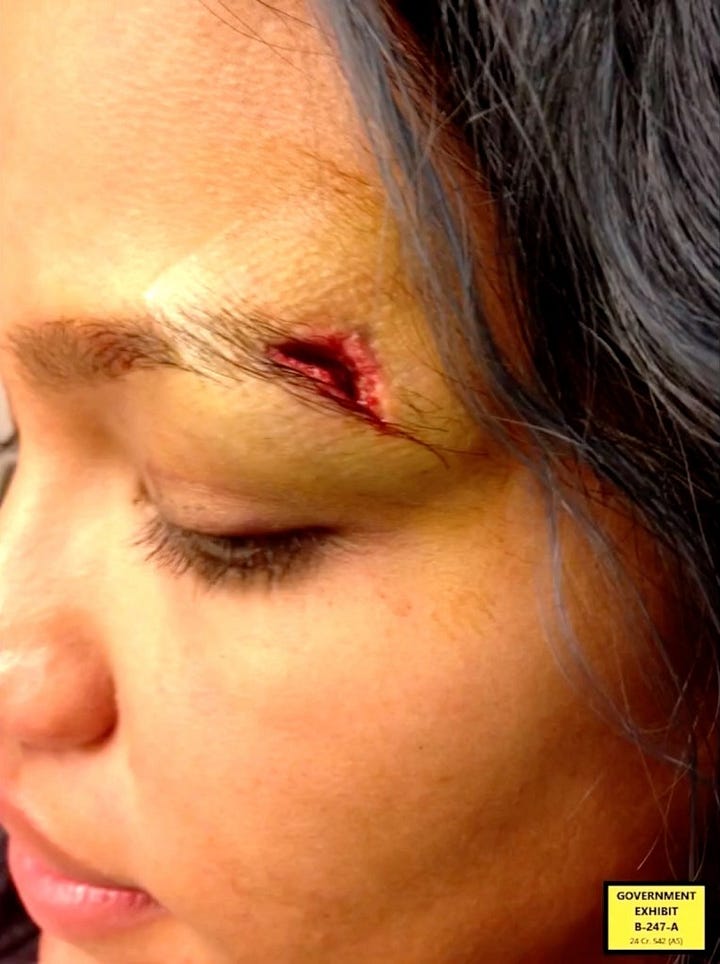

What he described was worse than rage. It was a system. Polished. Professional. Funded.
Girls brought in. Phones taken. Escorts selected. Surveillance turned on. Staff trained to smile through it. Pain rebranded as experience. Sexual violence repackaged as lifestyle.
And when it was over. When the freak offs ended. When the girls couldn’t take anymore. When someone broke down or asked to go home. They were erased.
No fanfare. No rescue. No goodbye.
James said it plainly. They disappeared.
You’d see a girl one day and never again.
Not fired. Not escorted out. Just gone. Their names deleted from the schedule. Their photos pulled from the guest list. Like ghosts with perfect makeup.
No one asked where they went. You weren’t supposed to.
Because asking was a threat. Because naming it made it real. Because the industry runs on a kind of willful blindness that protects power at all costs.
And the silence was never louder than when the girls were youngest.
The ones Combs liked best were barely out of girlhood. Like R.Kelly. He didn’t want women with agency. He wanted moldable.
Not partners. Not lovers. Projects. Clay. Girls who had not yet been taught to say no. Or they were but they couldn't say no to the glitz and the glamor. Because what young girl would? Girls who thought this was just the price of success.
And the truth. The one that lives under every carpet. Behind every locked door in Hollywood. In music. In modeling. In media. Is that this has always been about the children.
The industry does not protect its youngest.
It sells them. It shapes them. It grooms them into silence. It teaches them how to smile when they’re uncomfortable. How to pose through the pain. How to make rape look like branding. How to take the trauma and turn it into content.
And when they break….
He tells them they’re crazy. Difficult. Liars. And we. The public. The press. The culture. We let it happen. Because the most powerful hands are the ones doing the damage.
The ones giving awards. Signing checks. The ones behind the cameras. Behind the brands. Behind the lies.
The freak offs were not the beginning.
They were a symptom. Of a machine that runs on broken youth. Of an empire that feeds on the silence of the vulnerable.
And now. One by one. The silence is unraveling.

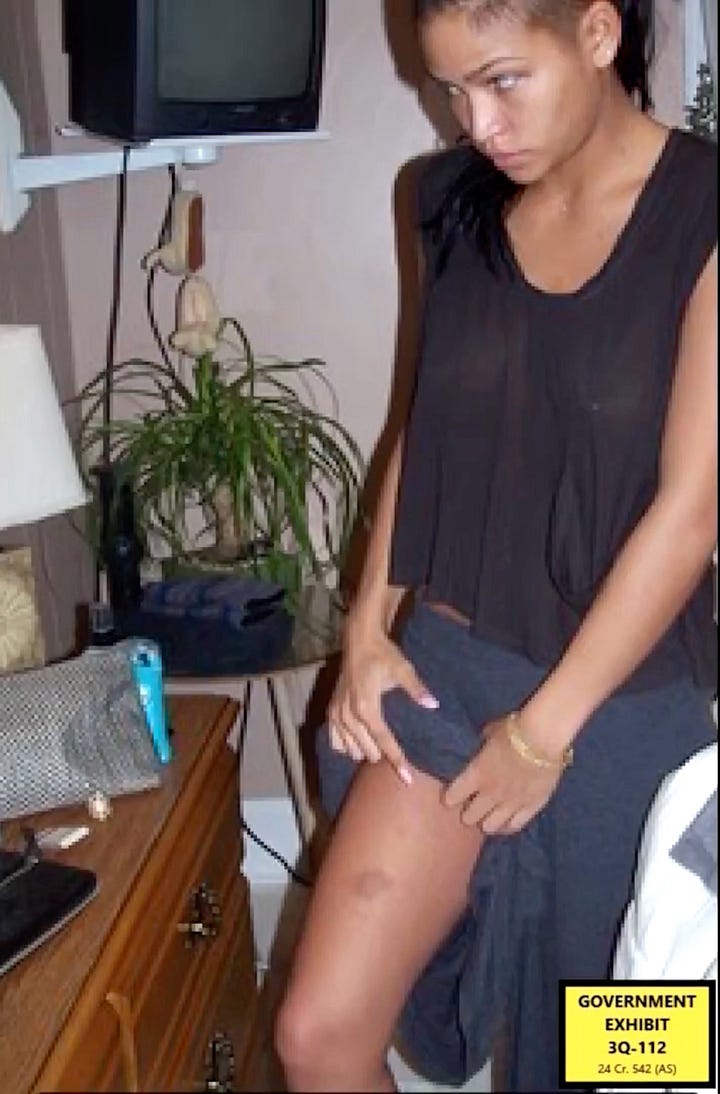
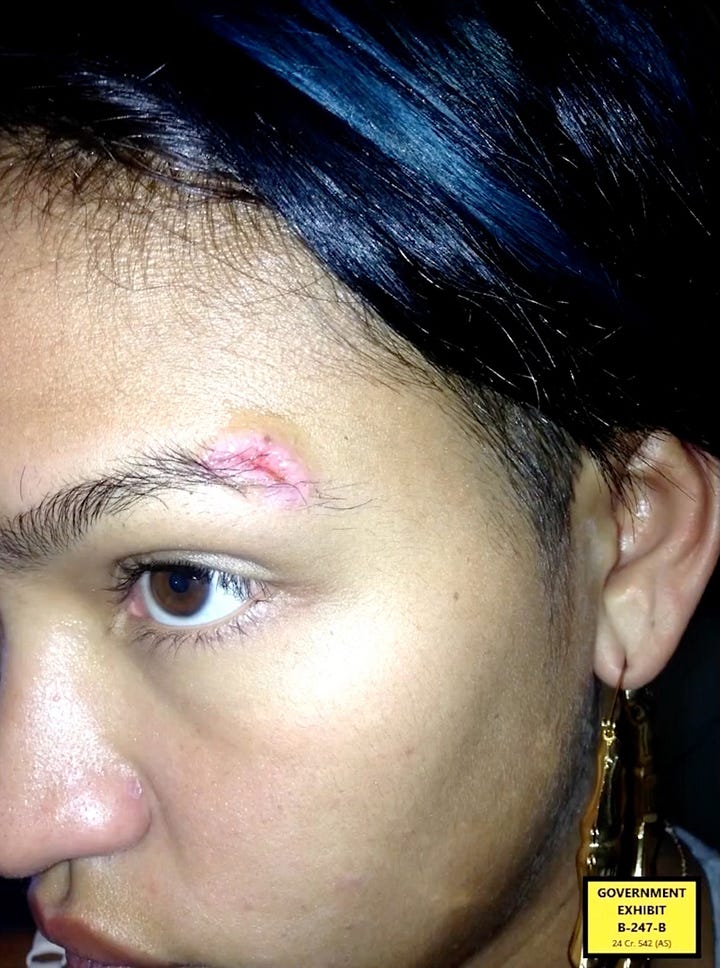
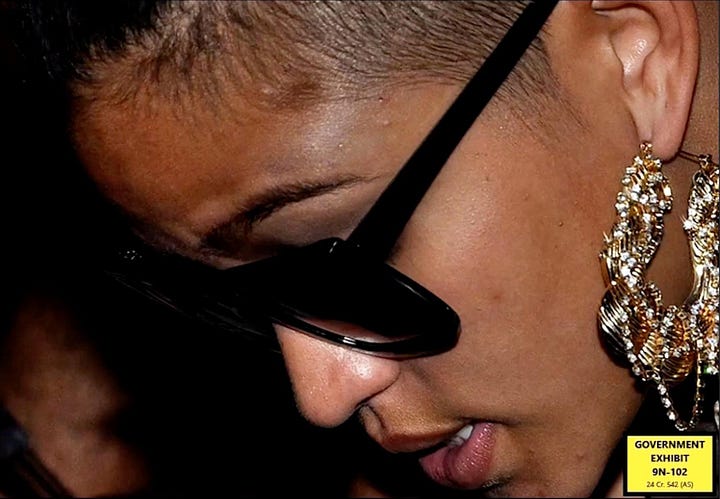
The girls who disappeared. The children who were shaped to please. The assistants who knew and stayed. The publicists who spun it all into lifestyle content. The influencers who called it love. The parents who said "at least you're in the room." The audience who cheered. They are all part of the story.
And if we don’t tell it fully. It will happen again.
This was never just about Combs. It was about all of them.
ITS ABOUT THE CHILDREN. ALWAYS WILL BE FOR ME.
Built on the Backs of Little Girls
What happens when the system you trusted was built to disappear people like you. What happens when justice moves slower than silence. When the girls are gone and no one even asked for their names.
What happens is this. A man sits on trial. Not just for what he did. But for everything he represents.
The power. The protection. The pattern.
Because this was never just about the stories that made headlines. It was about the ones that didn’t!! The ones that never even made it to the surface. The ones swallowed by a culture that profits off pain and keeps going like nothing happened.
This is what accountability looks like in its earliest form. Uncomfortable. Incomplete. Barely breathing. But alive.
Diddy's assistant came to court and deepened the cracked the surface. Through it poured everything the public was never meant to hear. The surveillance. The grooming. The girls. The disappearances. The fear.
Now we know.

And the question is, ‘What do we do with it?’ What do we do with what we saw? What we heard? What we ignored?
Because silence didn’t just protect Combs. Silence preserves the entire machine. And if that machine is ever going to die. It won’t be with a headline. EVER.
It’ll be with the truth. Said out loud. Said again. Said until the walls fall in.
Not for clout. Not for content. Not even for justice.
For the children.
Make sure you are keeping it locked in on my Instagram profile for daily updates and check out Alice Uncoded. Episodes 1 and 2 on all podcast platforms xo




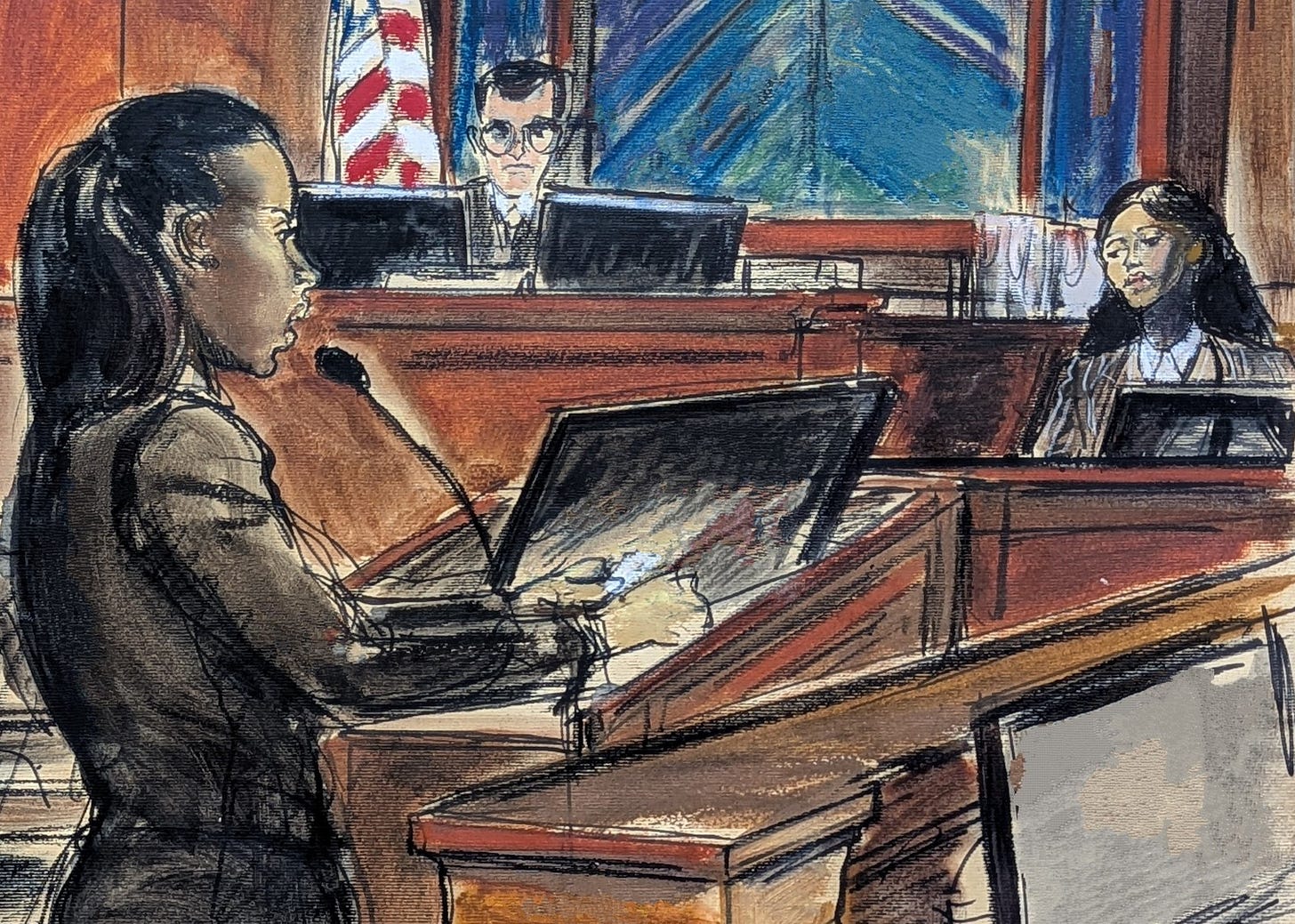

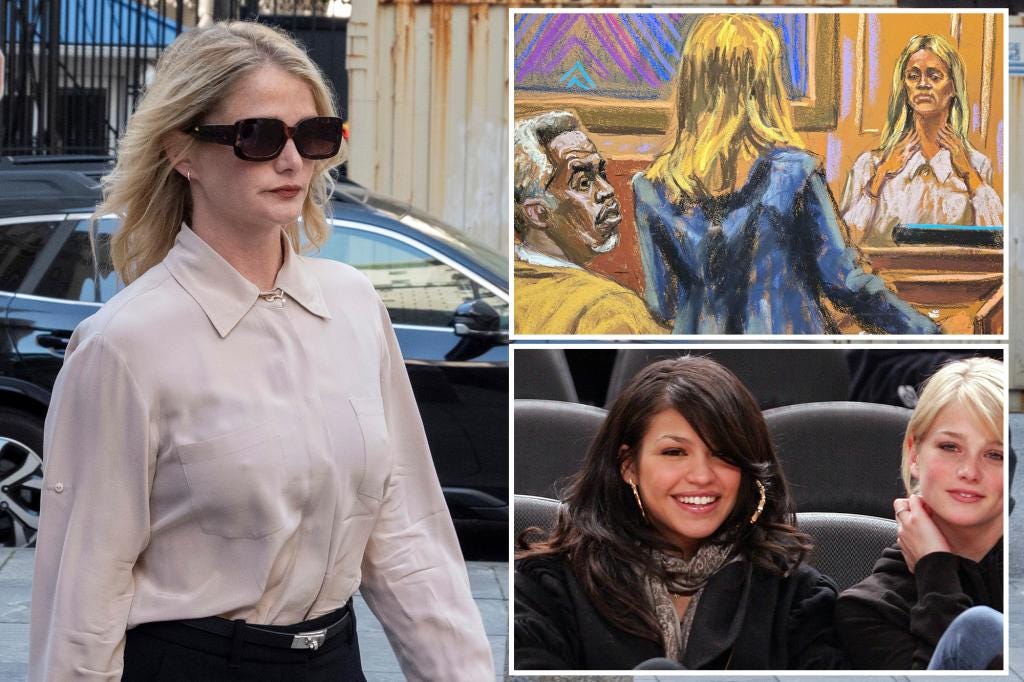







Love that !!!
Damn straight it’s ALL about protecting the children what is happening to children on this planet in this time is horrendous in SO MANY WAYS!!
Poison food poisoned air poisoned water poisoned planet poisoned culture poisoned economic machine POISON no justice no equality no opportunity
This is a pull your head out of your ass type report.
Wake up PEOPLE
your kids are being abused in so many levels and everyone is busy smoking the kardashains in the myriad addictions that are the “symptoms” of the cause of our addictions mental illness!!!
Fear based delusional selfish self centered self will run riot
Humanity needs to wake up quick or the part is gonna bee 🐝 ova in an ugly way.
The children are our canaries in the coal mine - of world that’s turned into
SHITSHOW.com!!
The collective spirit of humanity has become TOXIC -and no one’s saying a damn thing.
Diddy is no one special in the scheme of things the world has been run this way by people like him for ever and everyone takes the buy out the pay out and it just keeps perpetuating
Go hug your kid today and tell them how special they are people -and if not then try and be nice to someone !!!
Your fierce Alice!! I appreciate your guts integrity and tenacity keep it up GIRRRRRRRRRL!!
Great writing and truth telling. I am left speechless by his assistance’s compliance. I am so sad for those young girls. Trying to be famous is a dangerous slippery slope, Judy Garland was proof of that. Growing up in LA, as I did, in the 80, it was a scary place for young woman. I was naive and there were plenty of predators 😢 I cannot believe the real truth, as it seemed just “the way things were” but reading this… seems surreal.